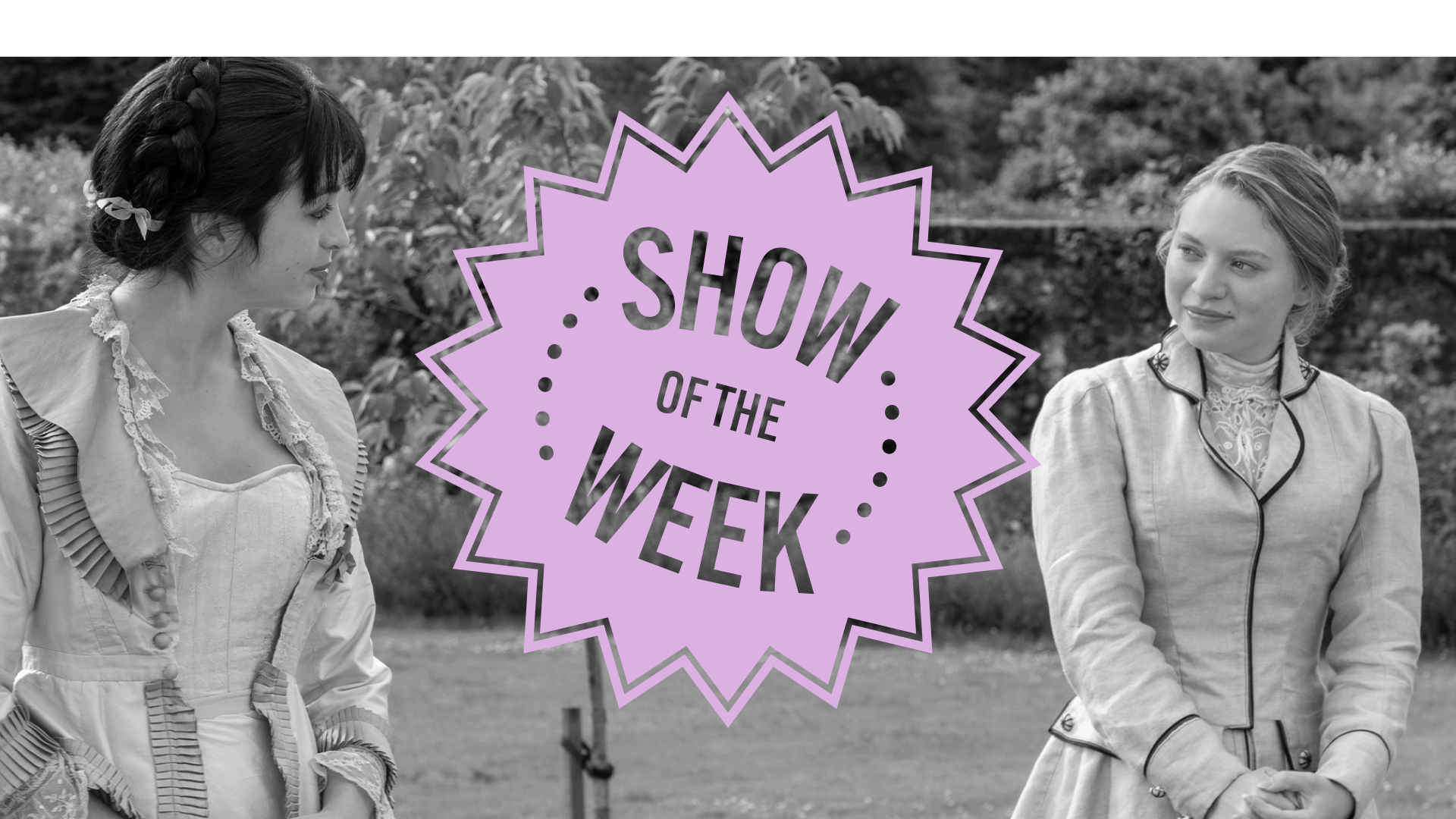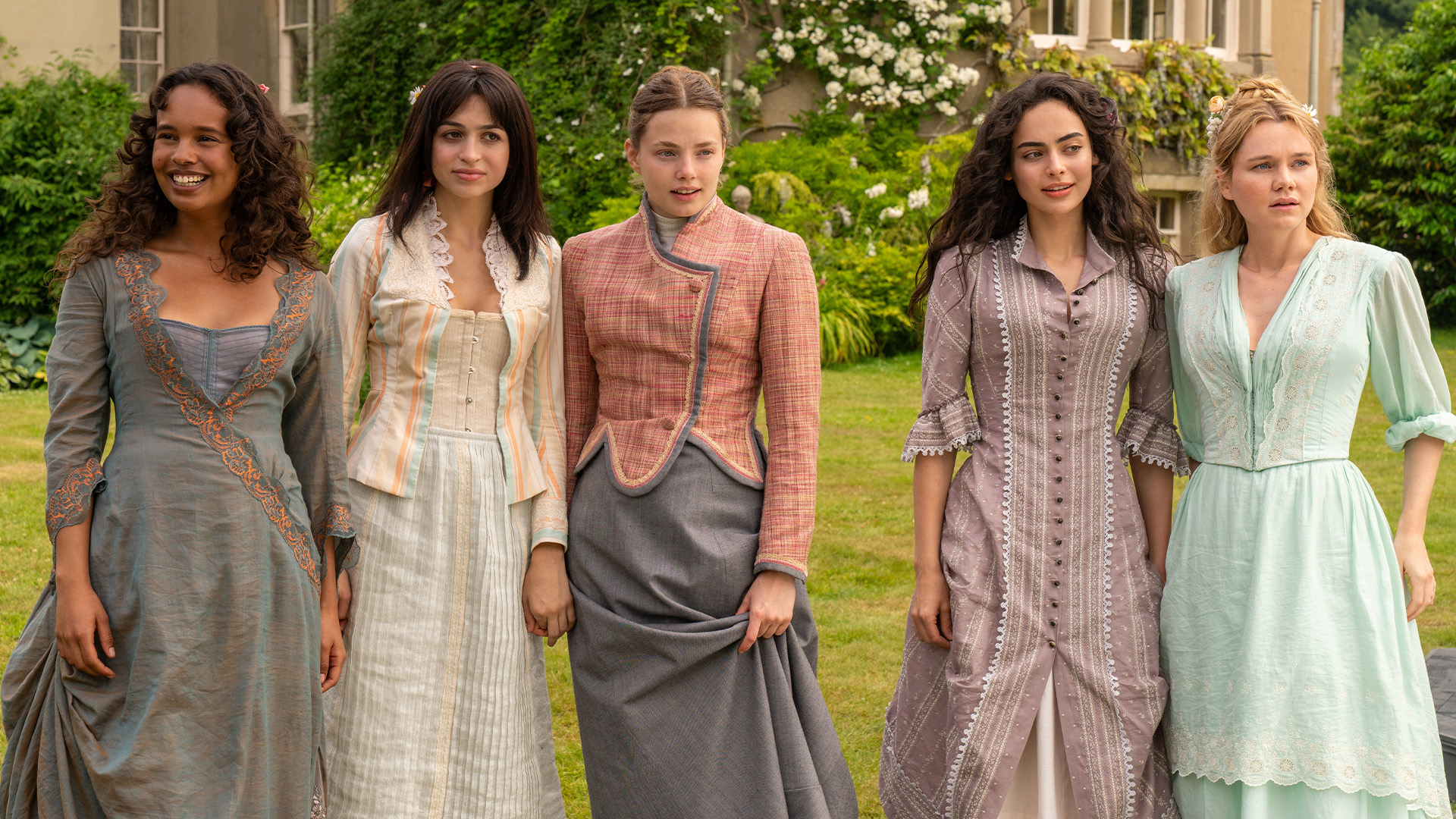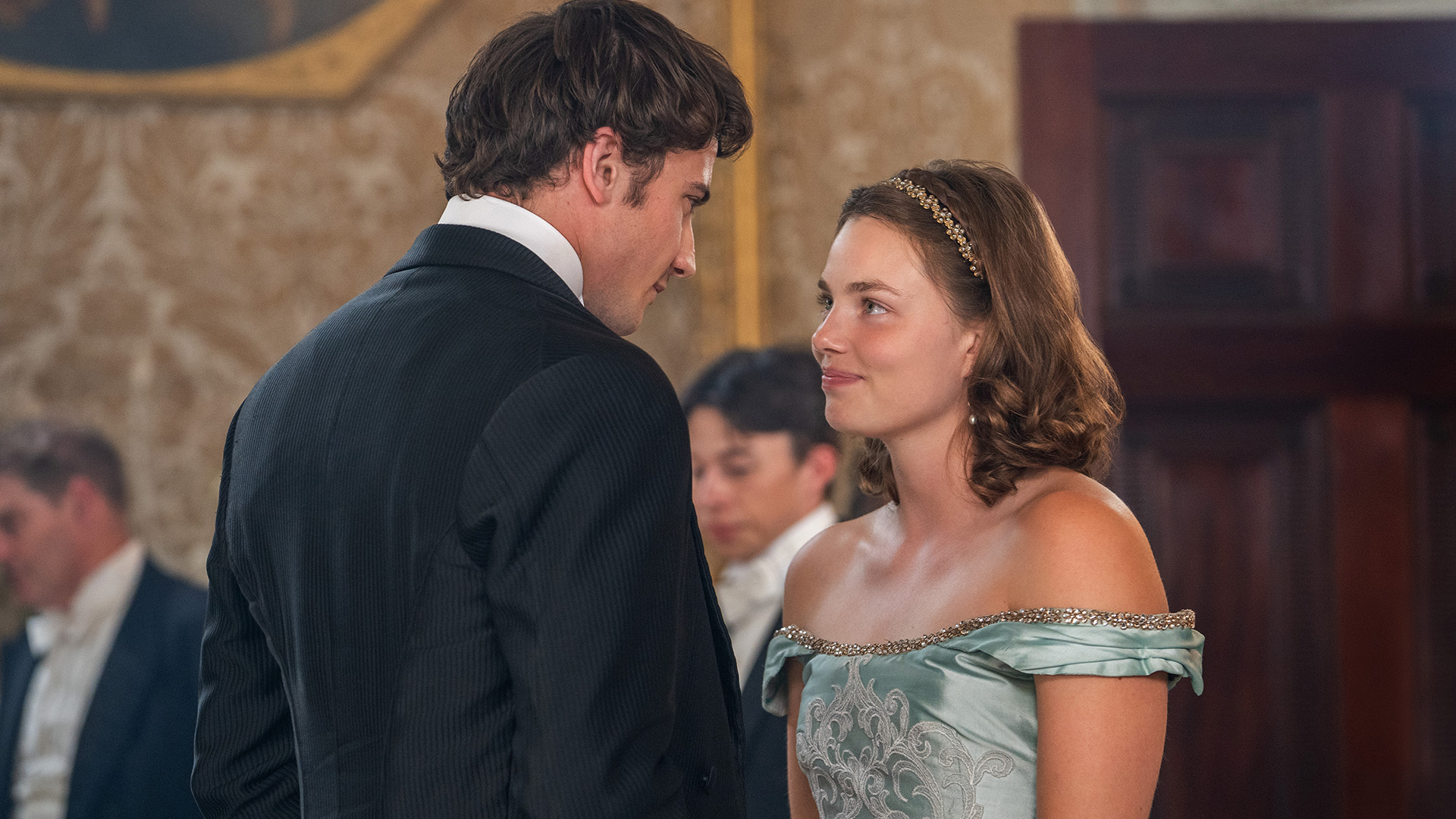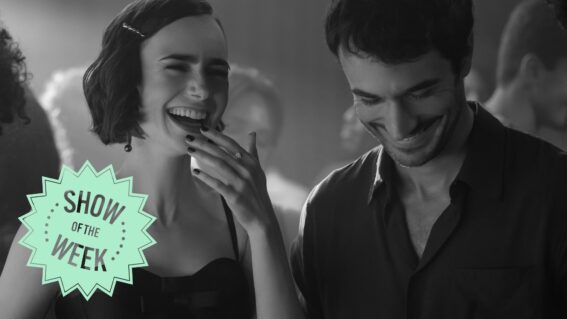British repression meets American bolshiness in period romp The Buccaneers
Corseted girlhood is infused with with blissful, modern energy in Apple TV+’s new series.

We’re all drowning in content—so it’s time to highlight the best. In her column, published every Friday, critic Clarisse Loughrey recommends a new show to watch. This week: Corseted girlhood is infused with with blissful, modern energy in The Buccaneers.
The Buccaneers, Apple TV+’s latest period romp, aims just a little higher than Bridgerton’s sugar-laced, nutrition-free distractions. You’d hardly call it prestige television, but it’s easy to imagine the buzzwords flying around the pitching session included “Dickinson”, “Sofia Coppola’s Marie Antoinette”, and “Greta Gerwig’s Little Women”.
The Buccaneers is a pleasant, if a little slight, infusion of corseted girlhood with blissful, modern energy. There are plenty of scenes of its quintet of 19th-century American heiresses frolicking, giggling, and downing champagne to the tune of woozy, empowering pop songs. I didn’t note down every track that played, but almost everything sounded like Wet Leg, including the series theme—a cover of LCD Soundsystem’s North American Scum, that’s actually by Emily Kokal and Miya Folick.
To some, this will be an act of blasphemy. The series, created by Katherine Jakeways, is an adaptation of Edith Wharton’s final novel—left unfinished after her death in 1937, and controversially completed in 1993 by Marion Mainwaring, who drew directly from the author’s detailed synopsis. Jakeways, then, has some amount of creative licence here, and has crafted her own story that uses Wharton’s world largely as a jumping off point for more contemporary concerns.
The series opens several chapters deep into the book, as sisters Nan (Kristine Frøseth) and Jinny (Imogen Waterhouse) St. George, alongside Lizzy (Aubri Ibrag) and Mabel Elmsworth (Josie Totah), arrive for the wedding of their friend, Conchita Closson (Alisha Boe), to the English Lord Richard Marable (Josh Dylan). United as a pack, they arrive to England in search of more eligible bachelors. American girls can lend wealth and stability to a crumbling aristocratic family, in return for the prestige and social mobility of a title.

Wharton had a sharp mind, and was a keen observer of society’s hypocrisies. Her works were often laced with the tension between “old” and “new” money, and with women chomping at the air to try and taste the smallest freedom and indulgence of their own desires. Critics are certainly right to point out that very little of that tone has been preserved in Jakeways’s version—it’s neither particularly sharp, nor all that satirical, and the standard old-fashioned speech is occasionally interrupted by the “well, that just happened” brand of linguistic clunkers.
And, when it comes to the divide between the social classes, the series simply plays British repression against American bolshiness. Dylan, as Richard, has clearly taken notes from Pride and Prejudice, both Colin Firth and Matthew Macfadyen editions—his confessions of love are perfectly stammered.“We’re Americans, when did we ever care what people think of us?” Conchita chimes in, at one point.

Certainly, the series takes a keen interest in women’s issues. Over the course of eight episodes, sexuality is questioned, nice boys turn out to be abusive brutes, and racism is veiled in polite conversation. The Buccaneers has embraced Shonda Rhimes’s ethos of reversing the onscreen whitewashing of history—it makes an added amount of sense here, since Wharton does, in her novel, actually breach the topic of race. Conchita is originally from Brazil, and is treated by those around her with a level of disdainful exoticism, though the show takes its own approach with this particular detail.
And even if there are plot lines here that Wharton would never have dared to openly breach, and which aren’t presented with any particular respect for historical accuracy, I think it’d unfair to reject the series outright as a disgrace to her memory purely because of its unfaithfulness. Yes, Wharton was a wit, but to characterise her solely as one forgets some of her other assets—she clearly cared deeply about her characters, and the fates of the young women she crafted.
And, so, while The Buccaneers may have buffed out the book’s satirical slant, it also does a quite beautiful job of capturing the bright, hopeful women Wharton described as “dancing nymphs” abound with “joyful giggles”. Despite what they suffer, they share a solidarity and an ingenuity. They represent those who, in any age, rush forwards towards the future. I can’t help but think that if Wharton were to see how her story is still recounted and received today, she’s appreciate how much faith we can still show in these young women.






















